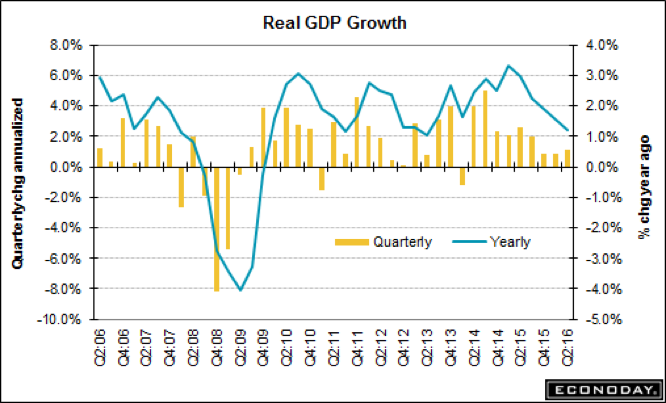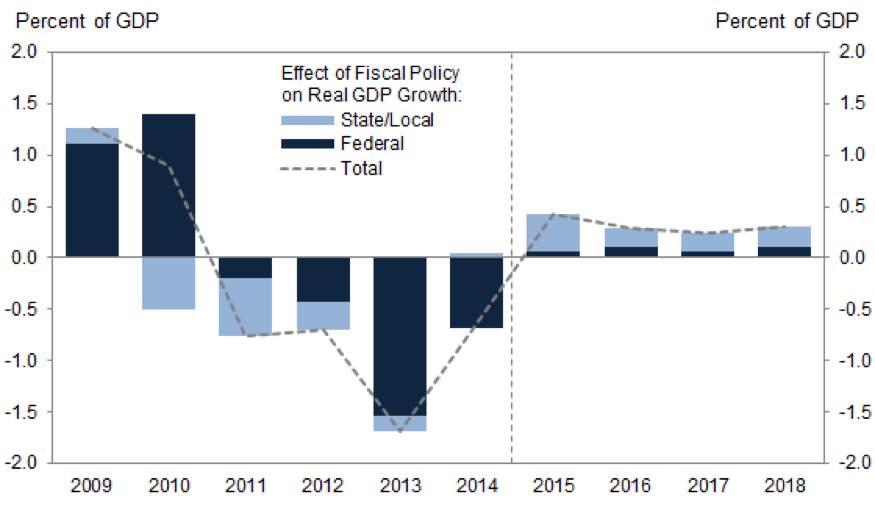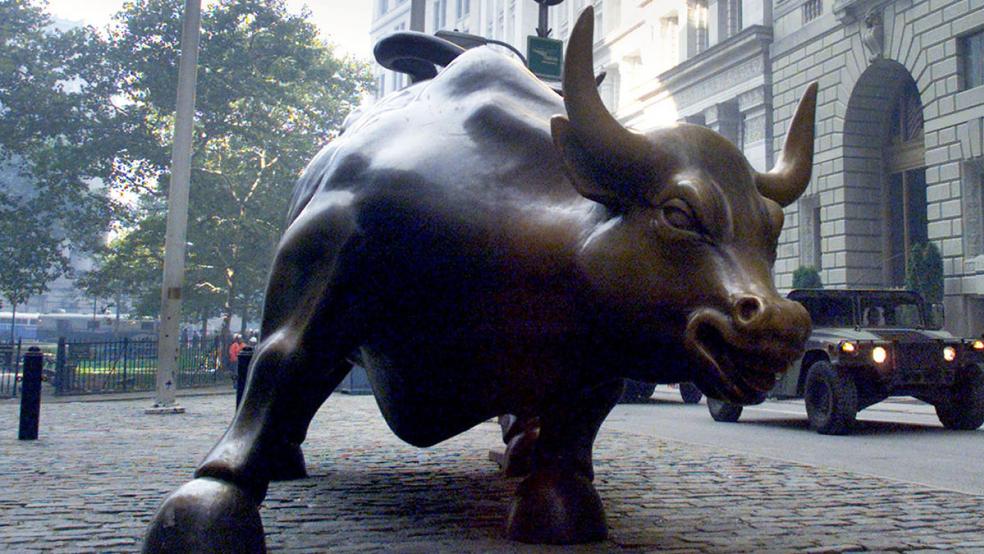The breathless coverage of Hillary Clinton's non-contagious pneumonia and Donald Trump's birther disavowal shows just how politically divided our nation is. As the presidential polls tighten up, and with both Trump and Clinton posting poor favorability and trustworthiness ratings, it's clear that partisan bickering isn't going anywhere.
The problem is, as a new Harvard study found, our paralyzed, divided political system is the biggest peril to our economy — and that could hurt the stock market at a time when the Federal Reserve is looking to tighten its monetary policy.
Related: US Economy Still Sluggish and the Election Isn’t Helping, Say Top CEOs
As the Fed's monetary methamphetamine dampened stock market volatility during this cycle, the only notable bouts of serious market volatility were associated with budget fireworks between President Obama and conservatives in Congress. We had the 2011 debt-ceiling showdown that resulted in the loss of America's AAA credit rating by analysts at Standard & Poor's. We had the government shutdown of 2013 and the fiscal cliff.
While stocks rebounded from each of these scares, the Harvard economists note that a dysfunctional body politic has left lasting scars on the economy as summarized in the charts below.

A lack of political cooperation kept the recovery from being stronger. Many blame the rise of the Tea Party and the Republican takeover of the House of Representatives in 2010 as slamming the door on any additional and much needed stimulus programs and gridlocking any new reforms.
Related: What’s Ailing the Economy? Political Paralysis May Be the Biggest Problem
Yet Obama shares some responsibility in this, if not the lion's share. It takes two to tango. Common ground could've been found, perhaps based on the findings of Obama's own bi-partisan commission on the national debt that would've balanced Republican concern about the nation's unsustainable long-term debt trajectory with his own desire for a larger near-term economic boost.
The commission's report, issued nearly six years ago, was chock full of good ideas including unnecessary red tape, making government spending more efficient, reforming entitlement programs, focusing the safety net on those who need it most and simplifying the tax code. Instead, it was simply ignored.
Moreover, Harvard's rebuke singles out areas of Obama's achievements — things like health care, higher income tax rates, high corporate taxes and a burdensome regulatory environment (amid his focus on carbon emissions, abortion/birth control coverage, full-vs. part-time coverage under Obamacare, etc.) — as drags on the economy. Areas that are major points of contention between Trump and Clinton.
Related: Trump Has a New Economic Plan, but the Numbers Still Don’t Add Up
Harvard blames a "lack of economic strategy, especially at the federal level" for the fact our political system has "become our greatest liability." They note rising political polarization made it harder to build consensus on "sensible economic policies that address key U.S. weaknesses."

That's a serious problem as GDP growth slows, a corporate earnings recession stretches into its sixth consecutive quarter and the Federal Reserve struggles to find a way to normalize its policy stance amid evidence that its extended experiment with aggressive bond buying and near-zero interest rates are raising financial stability risks and losing efficacy.
Related: Are Stocks Ready for a Trump Victory?
The Fed is no doubt also looking nervously at toothless efforts at negative interest rates in Europe and Japan, wondering if it would fare any better should the threat of a new recession emerge.
If the recovery is going to continue, we're going to need a fiscal kick in the rear. But with Democrats and Republicans largely viewing the other party's candidate as evil incarnate, the already low odds of brave reforms in areas like the tax code, entitlements and health care may be falling further. To say nothing of the chances of an outright fiscal stimulus package of tax cuts and spending hikes.
One point of optimism, laid out by economists at Goldman Sachs last month, is that “the outlook over the next couple of years no longer includes the impending tax hikes, spending cuts, expirations and other deadlines that characterized much of the post-crisis fiscal policy debate,” with the exception of the need to address the debt limit and expiring spending authority again in late 2017. “As a result, we expect structural policy changes to be emphasized over the deadline-driven issues.”
But if the election leaves us with a divided federal government, history suggests federal lawmakers won’t step up. “In the past, divided government has been associated with a tightening in the fiscal stance in the first year of a new administration (0.8% of GDP on average since 1961) while single-party control has generally resulted in incremental loosening (0.9% of GDP on average),” Goldman noted. “The obvious reason for this is that the president is likely to have a harder time enacting legislation when one or both branches of Congress are controlled by the other party.”
Related: How Obamacare Clears the Field for a GOP Senate Win
There’s obviously much more to factor in to any fiscal forecast, and Goldman’s analysts projected last month that federal spending is likely to stay flat next year before climbing by about 1.5 percent in 2018.

Source: Congressional Budget Office, Department of Commerce, Joint Tax Committee, Goldman Sachs Global Investment Research
Bu the bottom line is clear: The U.S. needs its politicians to start working together to create a stronger economy and more globally competitive business environment. If that doesn’t happen, and should the drag of weak GDP growth and falling corporate earnings continue into 2017, which looks likely, partisan bickering could finally deliver the coup de grâce to the post-2009 bull market under either a President Clinton or President Trump.






